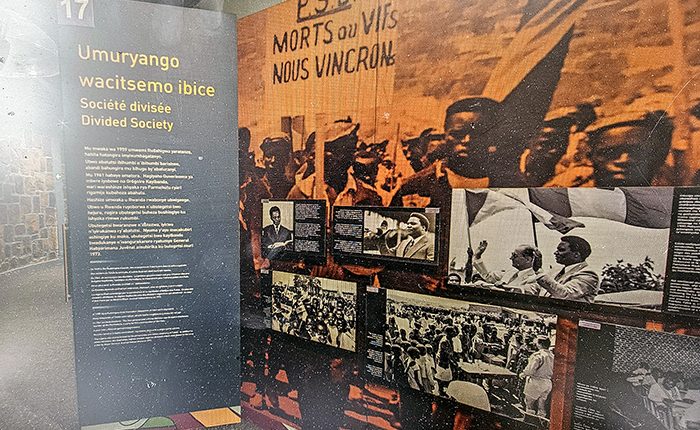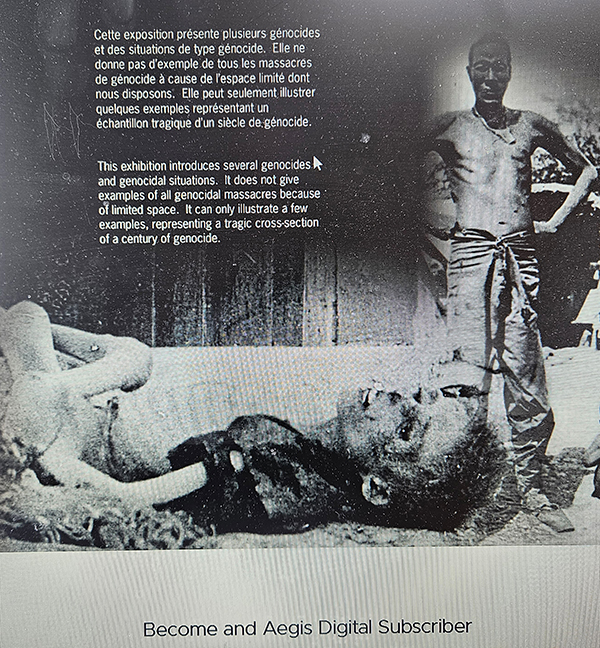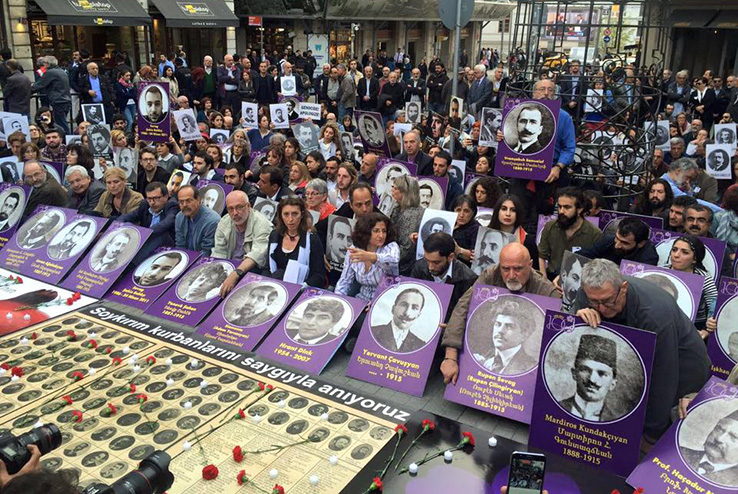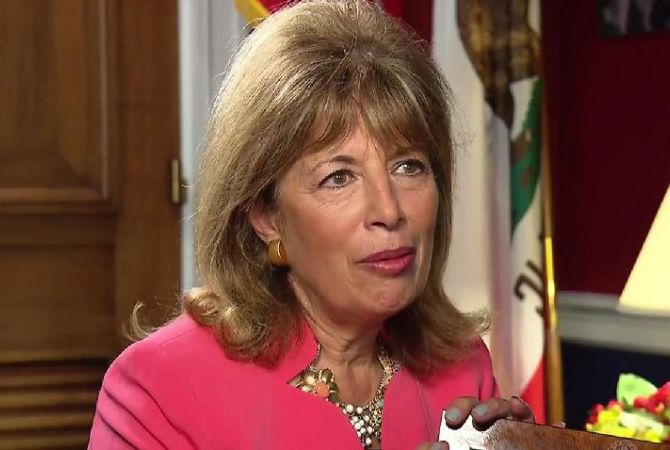Gomidas Institute Initiates Campaign on Kigali Genocide Memorial and the Armenian Genocide
By ARA SARAFIAN
Last January I came across a news report that the Kigali Genocide Memorial in Rwanda had removed a section dedicated to the Armenian Genocide. According to the report, this decision was taken under pressure from Turkey.*I wrote to the Aegis Trust about this news item, but I have not received a response yet. The Aegis Trust is a major supporter of the Kigali Genocide Memorial and they have also been sympathetic to Armenians in the past.
However, I have to confess, I took a virtual on-line tour of the Kigali Genocide Memorial and did not see any reference to the Armenian Genocide. Other than Rwanda, there were references to the Hereros, the Holocaust, Cambodia and the Balkans.
There was also something disturbing about what I saw on my virtual tour. The memorial includes a blanket note in small print, on a collage panel, which includes a disturbing image from the Armenian Genocide, stating that not all cases of genocide could be covered by the museum. There is something mocking in that juxtaposition of the Armenian genocide victim staring at the offending text.
I think the Armenian Genocide was and should be included in the Kigali Genocide Memorial because it was a seminal event that triggered Raphael Lemkin in his understanding of the crime of genocide. In his memoir, “Totally Unofficial,” Lemkin describes his dismay in 1921, when a young Armenian assassin, Soghmon Tehlirian, was put on trial for killing fugitive mass murderer Talaat Pasha, while Talaat Pasha was not put on trial for killing a million Armenians a few years earlier. “At that moment, my worries about the murder of the innocent became more meaningful to me. I didn’t know all the answers but I felt that a law against this type of racial or religious murder must be adopted by the world.”**
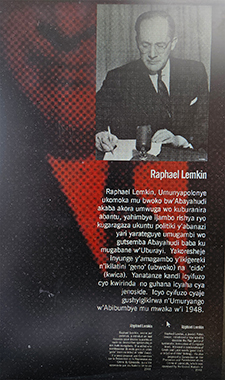

So, there are good reasons that Kigali Genocide Memorial should not have dropped its references to the Armenian Genocide. It is in this spirit, without undermining the credibility of the Memorial, that the Gomidas Institute is now addressing relevant circles in Kigali and the United Kingdom to restore the Armenian Genocide to its rightful place at Kigali Genocide Memorial.
* Guillaume Perrier in Le Point, dated 14 January 2024, Sous la pression de la Turquie, le Rwanda a supprimé la référence au massacre des Arméniens de 1915 du principal musée consacré au génocide des Tutsis. (Under pressure from Turkey, Rwanda removed the reference to the 1915 massacre of Armenians from the main museum dedicated to the genocide of the Tutsis).
**Raphael Lemkin, Totally Unofficial: The Autobiography of Raphael Lemkin, ed. Donna-Lee Frieze, Yale University Press, 2013, pp. 19-20.
*** Stefan Ihrig, Ataturk in the Nazi Imagination, (Cambridge, Mass.: Harvard University Press: 2014)
DISCLOSURE: Ara Sarafian is a historian and the executive director of the Gomidas Institute. The Gomidas Institute is an independent academic institution dedicated to modern Armenian studies and research. It is active in the documentation of the Armenian Genocide through its research and publications, as well as peacebuilding efforts in Turkey today.

